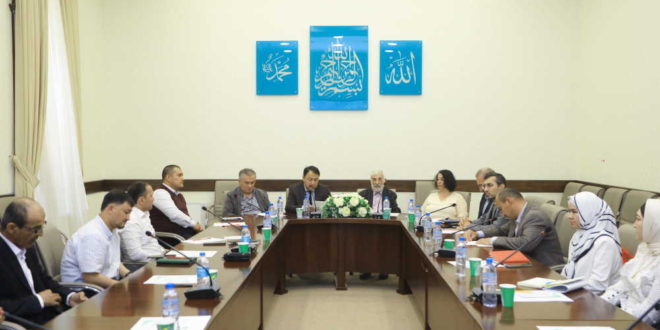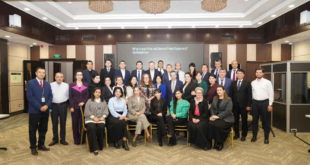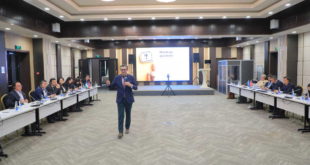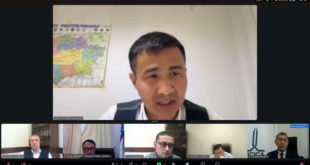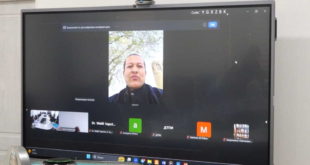The second stage of the seminar-training titled “Elements of Codicology of Central Asian Manuscripts”, jointly organized by the Imam Bukhari International Scientific Research Center and the Samarkand State Museum-Reserve, was held on May 1. The event featured Professor Francis Richard of the French National Center for Scientific Research and Dr. Maria Eftimiou from the Collège de France.
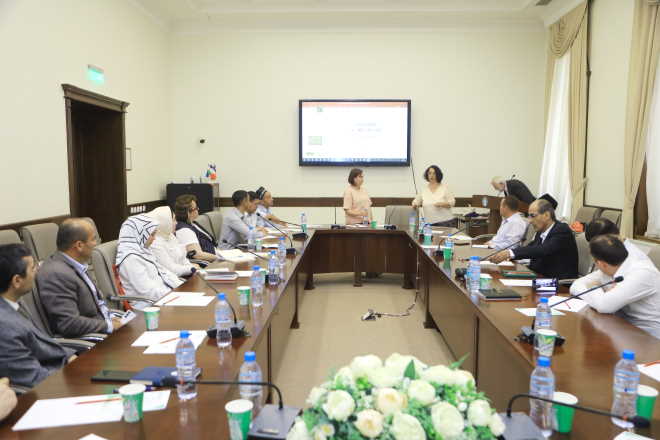
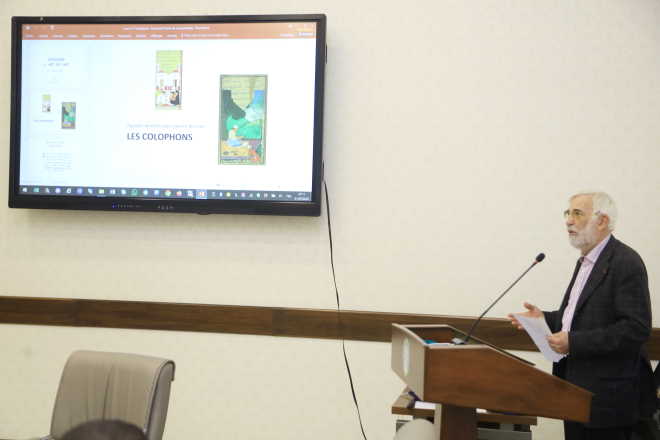
The seminar brought together scholars and researchers from academic, scientific and cultural institutions across Uzbekistan, as well as international experts from France, Turkey and neighboring countries. Professor Francis Richard shared insights from his codicological research, highlighting key aspects that should be considered when studying manuscripts. He emphasized the importance of closely analyzing the structure of colophons, including details such as the name of the patron, the scribe or calligrapher, the exact date and place of transcription and the seal. He noted that these elements are crucial in manuscript studies and can play a decisive role in uncovering historical truths.
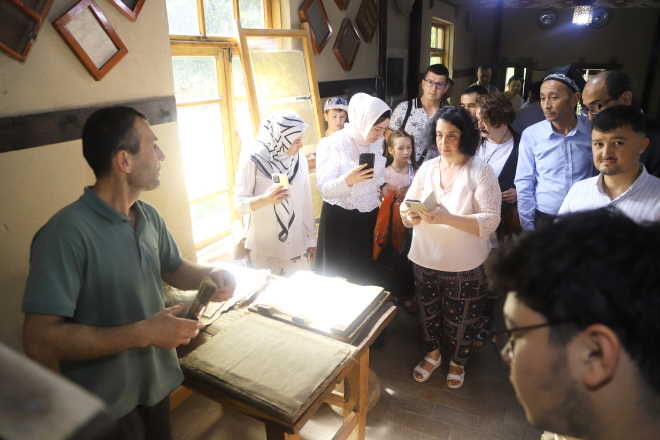
During his lecture, the professor cited examples from manuscript copies preserved both in Uzbekistan and abroad. He also discussed measures to be taken during restoration in cases where certain challenges may arise.
In the second half of the day, the practical segment of the seminar-training was held in the Konigil tourism village near Samarkand. Participants were introduced to the traditional production process of Samarkand paper, which holds a significant place in the history of Central Asian manuscripts.
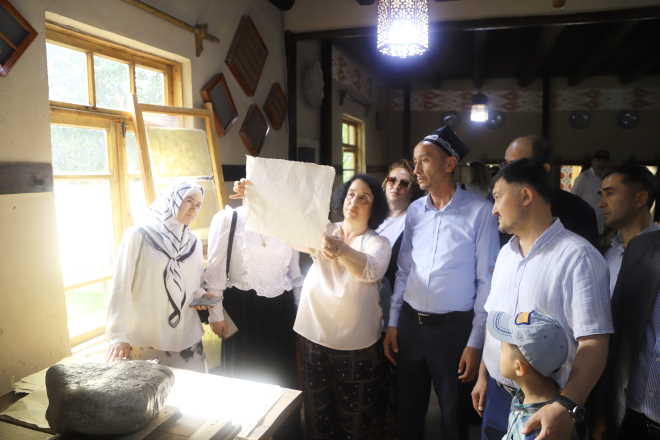
At the famous “Koni Ghil Meros” workshop, local artisans demonstrated the ancient techniques used to produce paper. The process, which involves silk, mulberry fiber and natural wood materials, included stages such as pulping, washing, smoothing, and drying. Participants had the chance to observe the steps firsthand and some even took part in the process themselves.
Attendees were also informed about the historical importance of Samarkand paper in the copying of religious, scientific and literary works, particularly its remarkable ability to endure for centuries without decaying. Both Professor Francis Richard and Dr. Maria Eftimiou emphasized the codicological significance of Samarkand paper.
This part of the seminar successfully blended academic knowledge with practical experience. It served as a valuable opportunity for young researchers and specialists to not only study codicology in theory but also develop skills in source analysis and working directly with historical documents. The session left a profound intellectual and cultural impression on all participants.
 Imom Buxoriy xalqaro ilmiy-tadqiqot markazi bukhari.uz
Imom Buxoriy xalqaro ilmiy-tadqiqot markazi bukhari.uz







